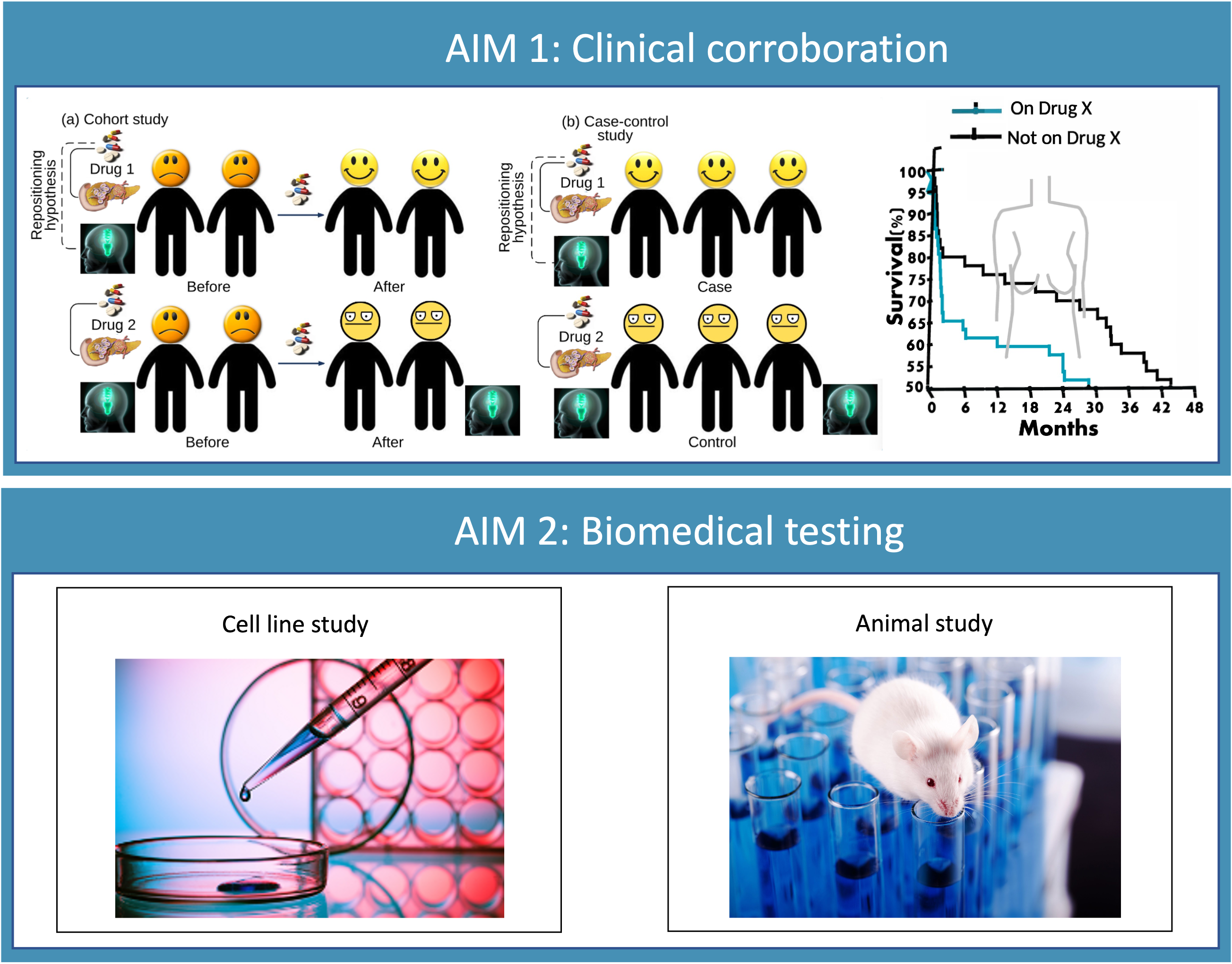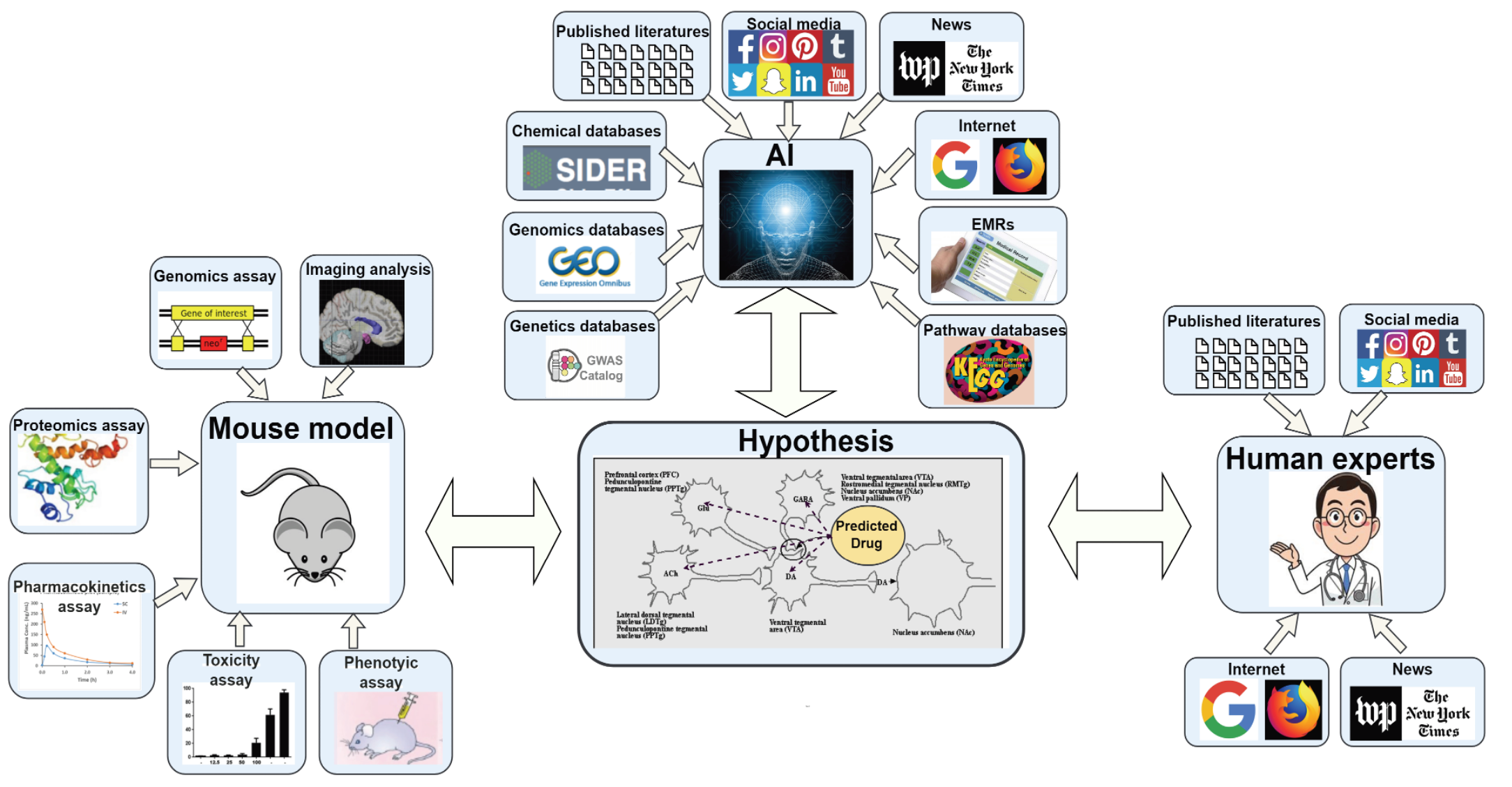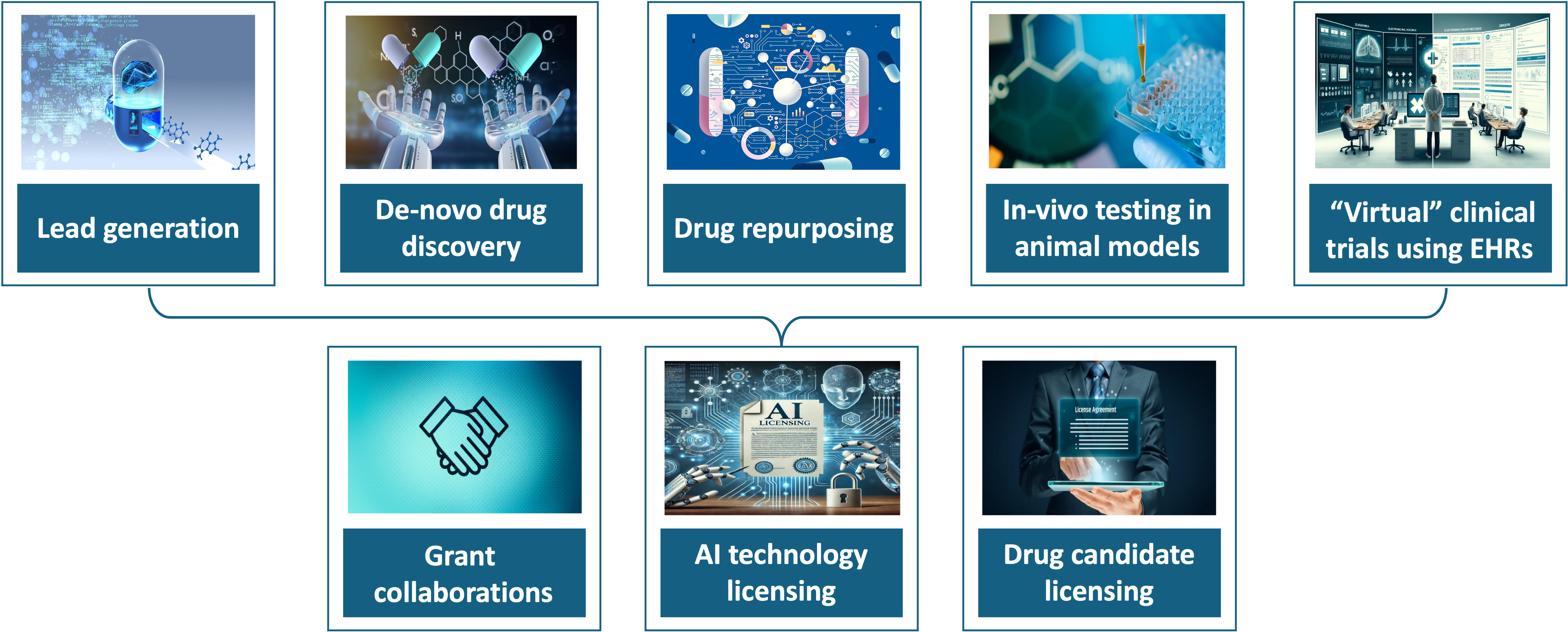Our center uses computing technology and big data to find drug discoveries in a multitude of areas, including:
Psychiatric disorders
Drug treatments for substance use disorders
The aim of this research is to assess the effectiveness of drug treatments for substance use disorders—including opioids, alcohol, tobacco, cannabis, and stimulants—by corroborating their therapeutic potential through retrospective cohort studies using EHRs and further collaborating with biomedical researchers to conduct in vitro and in vivo biomedical testing to understand their mechanisms of action.
Integrated drug repurposing strategy for substance use disorders
The aim of this research is to develop a drug repurposing strategy for substance use disorder. The strategy combines AI-based drug prediction, expert panel review, clinical corroboration through EHR-based testing, and data-driven mechanisms of action analysis. Our drug repurposing strategy is highly generalizable and dynamic and can be used for drug discovery for other substance use disorders.
Publications: Molecular Psychiatry, Addiction
Collaborators: Dr. Nora D Volkow (NIDA), Dr. T. John Winhusen (University of Cincinnati College of Medicine)
Neurological disorders
An Integrated Computational Approach with Experimental Validation in Alzheimer's Disease Research
The aim of this research is to develop an integrated, multi-dimensional, knowledge-driven systems approach to identify and explore the complex interactions between microbial metabolites, microglia, and Alzheimer's disease (AD) pathology. Furthermore, we collaborate with wet lab teams to experimentally validate these associations in mouse models of AD. Our research also extends to Parkinson’s disease, amyotrophic lateral sclerosis, pain, and other neurological disorders.
Publications: Acta Neuropathologica , Nature Communications , Alzheimer's Research & Therapy , Alzheimer's & Dementia , Science Advance
Collaborators:Dr. Xin Qi (CWRU School of Medicine)
Cancers
Antihistamine-based hematopoietic therapies
This project aims to explore the impact of antihistamine treatment on white blood cell counts in allergy patients using a nationwide EHR database, employing advanced statistical techniques to assess the risk of elevated WBC compared to alternative anti-allergy medications.
Collaborators: Dr. Amar Desai (CWRU School of Medicine)
We welcome collaborations from both academia and industry at all stages of drug development:






